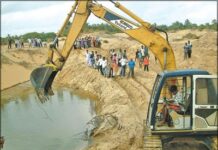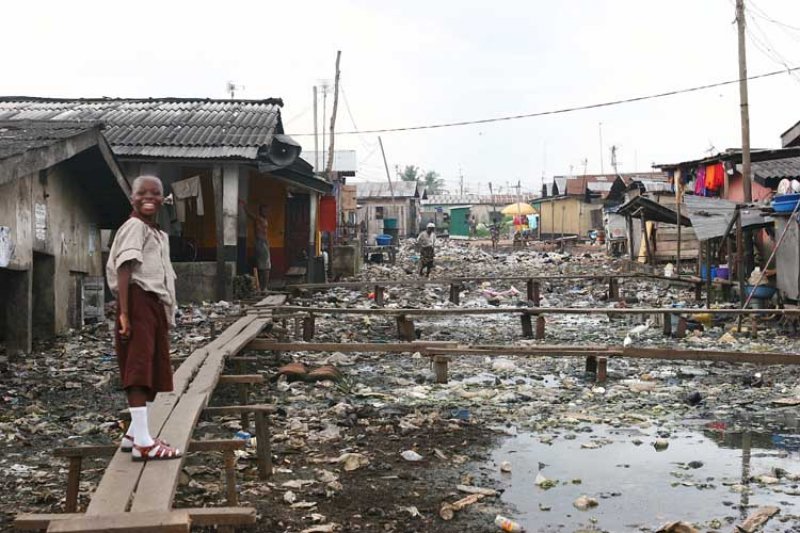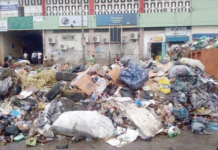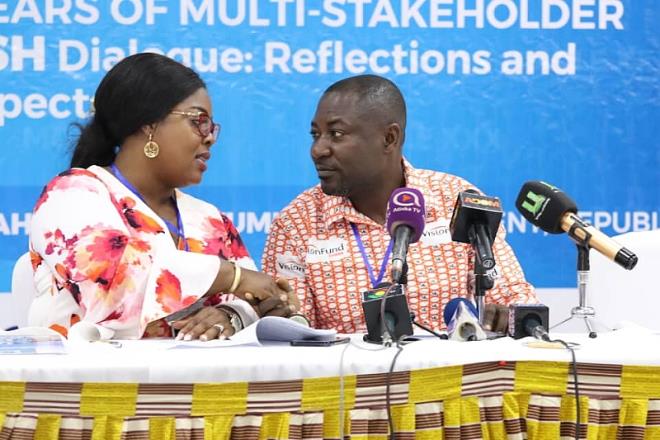
The Environmental Service Providers Association (ESPA) and the Coalition of NGOs in Water and Sanitation (Coniwas) are calling on the government to immediately address the low charges allotted to service providers in managing solid waste.
Ghana charges an average cost of less than $10 in managing a tonne of municipal solid waste. This charge is comparatively lower than the World Bank’s recommended fee of $30 for managing a tonne of waste.
The two organizations in a joint press statement to announce the coming together of ESPA and Coniwas as one mouthpiece to ensure pro-poor environmental service delivery for all citizens demanded of the government to address this cost deficit for sustainable waste management.
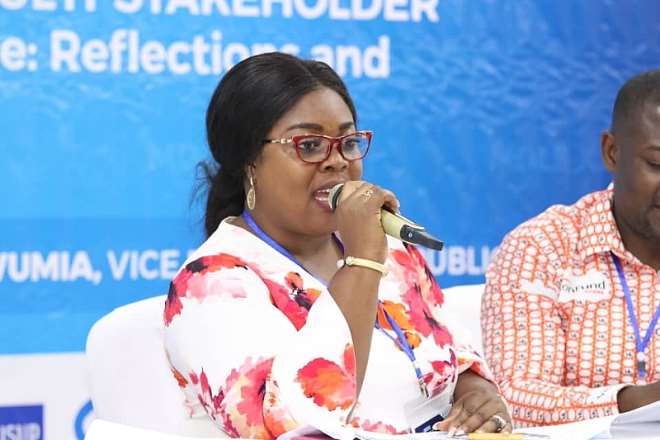
The Vice President of Coniwas, Mr. Atta Arhin who delivered the press statement at the 30th MOLE XXX WASH Conference in Ho in the Volta region indicated that this low financial allocation to the Water and Sanitation Sector is abysmally low and cannot sustain the sector.
Below is the full statement:
A JOINT STATEMENT BY THE ENVIRONMENTAL SERVICE PROVIDERS ASSOCIATION OF GHANA (ESPA)
AND
COALITION OF NGOs IN WATER AND SANITATION (CONIWAS)
UNITING THE FRONT OF NON-STATE ACTORS TO ACCELERATE UNIVERSAL ACCESS TO IMPROVED ENVIRONMENTAL SANITATION IN GHANA
The Chairman, CONIWAS
The President, ESPA
Development Partners,
Our Friends from the Media
Distinguished Invited Guests
Ladies and Gentlemen
Introduction
The challenges associated with environmental sanitation in Ghana are daunting especially as they are highly connected with the attainment of not only Sustainable Development Goal 6, but also all the other SDGs.
In 2017, as part of the official launch of the National Sanitation campaign, the President of the Republic of Ghana, Nana Addo Dankwa Akufo-Addo outlined his vision for Ghana to be a clean, healthy and prosperous nation in which all citizens have opportunity realize their aspirations and dreams. Critical to achieving this vision, is the need to ensure the highest level of environmental cleanliness, which was encapsulated in the Accra as the cleanest city in Africa Agenda.
The establishment of the MSWR is the vehicle intended to deliver the President’s vision, which all Ghanaians embrace.
We commend government for its bold decision to establish the National Sanitation Authority together with the National Sanitation Fund. We are convinced that the NSA will be the game changer and the panacea for addressing the numerous environmental sanitation challenges.
However, three years into the establishment of the Ministry, progress has been slower than expected on the following grounds:
● Investment in environmental sanitation has been abysmally low. Budgetary allocation to the Ministry has declined from GHS255 million in 2017 (which was woefully inadequate) to GHS 246 million 2019.
● Open defecation remains unacceptably high at 22%.
● Only 21% of Ghanaians have access to improved sanitation.
● Less than 3% of liquid waste is treated and disposed of safely
● Ghana generates over 5million tonnes of waste per annum of which only 60% is collected and disposed of safely. The remaining 40% end up in unauthorised places including drains.
● The inadequate financing of solid waste management coupled with high cost of operations and unrealistic tariffs further constrain the capacity of such service providers to deliver the services effectively especially to the poor.
● The unavailability of treatment facilities and final disposal sites have become major obstacles in service delivery.
● Delays in payment of service providers by government, high taxes on imported equipment and increasing cost of fuel is driving many service providers out of business.
● Ghana charges less than 10 dollars in managing a tonne of waste, which is relatively lower than what is recommended by the World Bank (30 dollars for a tonne of waste).
● There is inadequate capacities of MMDA’s to enforce environmental sanitation bye-laws that mandates residence to subscribe to approved environmental services.
ESPA an association of private waste management companies committed to the needs of Ghana’s environmental sanitation. CONIWAS is a body of civil society organization which works in partnership with relevant stakeholders to influence policies, remove barriers and promote access to sustainable WASH services, especially for the poor and vulnerable,
We believe that Ghana has the capacity to overcome these challenges and achieve the vision of clean, healthy and prosperous nation if only government will demonstrate political will and commitment to prioritizing and increasing investment in the sector with the support of its development partners.
We further believe that if ESPA, CONIWAS and other non-state actors join forces with government and Development Partners, a sustainable solution can be found.
The two organizations have therefore resolved to collaborate to:
● Ensure pro-poor environmental service delivery for all our citizenry
● Dialogue with government and MMDA’s on fair pricing that protects the interest of consumers and private service providers.
● Engage government on the need to support local and indigenous private sector companies to develop the needed infrastructure to improve service delivery.
● Exchange information on sustainable innovative technological solutions and systems for improved environmental sanitation services.
● Contribute to opportunities for job creation for the teaming unemployed youths in the country
We call on the government to, as a matter of urgency:
● Accelerate the establishment of the NSA and NSF.
● Fully involve all stakeholders including non-state actors in the design and implementation of the NSA and NSF
● Increase financing for environmental sanitation through government budget and other innovative financing instruments including tax waivers and guarantee for private commercial financing.
- Provide adequate infrastructure for waste treatment, recycling and final disposal through partnerships with the private sector.
- Urge government to support existing waste treatment facilities with financial incentives including, management fees, signing off-takers agreement and provide subsidies.
Conclusion:
CONIWAS and ESPA reaffirms their unflinching commitment to collaborate to promote a clean, healthy and prosperous Ghana where all citizens can realize their fullest potential.
We encourage all stakeholders to take advantage of this historic partnership by creating the enabling environment for effective and efficient environmental sanitation services delivery.
Long live CONIWAS!
God bless our homeland Ghana and make our nation greater and stronger
Long live ESPA!
Source: Ghana/Starrfm.com.gh/103.5FM


